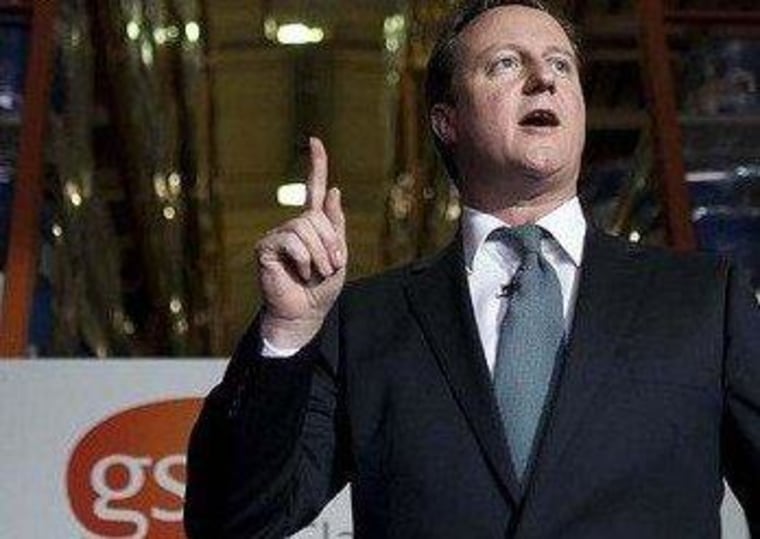Mitt Romney arrived in London early this morning, as part of a multi-day international excursion. Perhaps, while he's across the pond, the Republican presidential hopeful can take a look at the problems plaguing the British economy.
The U.K. economy unexpectedly shrank the most since 2009 in the second quarter as record rainfall and an extra public holiday hurt output, increasing pressure on Prime Minister David Cameron to abandon the government's biggest budget squeeze since World War II.Gross domestic product fell 0.7 percent from the first quarter, when it dropped 0.3 percent, the Office for National Statistics said in London today. Economists forecast a 0.2 percent decline, according to the median of 36 estimates in a Bloomberg News survey. Construction plunged 5.2 percent, production fell 1.3 percent and services declined 0.1 percent.
Americans should care about this, if for no other reason because of interconnectivity of the modern global economy. But there's also a purely political perspective to keep in mind: namely, the problem of Republican predictions.
As we discussed in April, Republican policymakers in the U.S. spent quite a bit of time arguing that the United States should follow Europe's lead and impose austerity measures here at home. This is especially true of David Cameron's British austerity policies, which have drawn enthusiastic praise from Republicans.
In fact, it was just last year when Sen. Jeff Sessions (R-Ala.) wrote an op-ed urging U.S. policymakers to follow the lead set by our friends across the pond: "We need a budget with a bold vision -- like [the one] unveiled in Britain."
We're now witnessing the effects of the Tories' conservative vision: the first British double-dip recession since 1975.
Will this deter Republicans who continue to argue that spending cuts and a focus on debt reduction -- remember "cut and grow"? -- will work wonders? Probably not, but the American mainstream should take note.
In 2011, austerity's champions -- in Europe and the U.S. -- said taking money out of the economy and scaling back investments will lead to stronger growth and lower debts. We've now seen the results of this experiment: lower growth and higher debts.
A year ago, Richard Portes, an economist at the London Business School, argued, "My view is that we are in serious danger of a double-dip recession. This is going to be a cautionary tale."
A year later, we know Portes was exactly right, but American conservatives refuse to learn the lesson.
